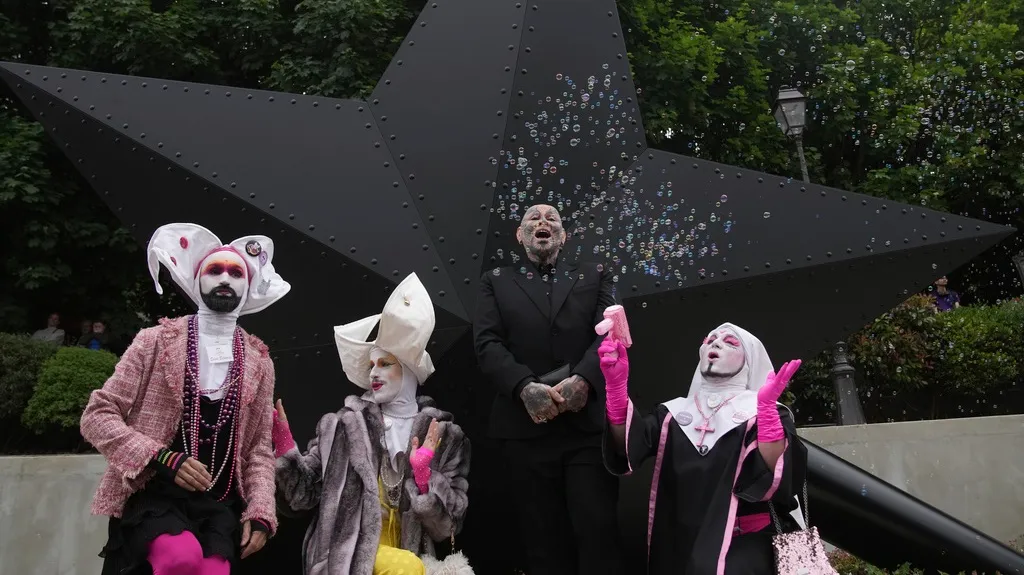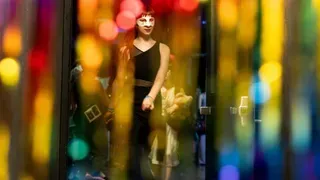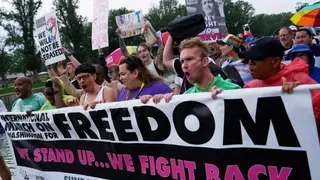May 5, 2008
'Lesbian Phobia' at Work to Feminize WNBA Players
Kilian Melloy READ TIME: 3 MIN.
Looking to give its players a makeover, the Women's National Basketball Association gave rookies lessons in how to handle the media, how to stay fit and healthy--and how to wear clothes and makeup.
The Chicago Tribune published a May 4 article on the story, in which some regarded the tutorial in how to look like a lady to be a practical approach to marketing, while others worried that placing looks over scores devalued the players' athletic accomplishments.
Players for the NBA, which comprises male teams, also receive tutorials, the Tribune said--but not in how to look pretty. In their case, the training has to do with how they behave when not playing the game.
Said WNBA player Candace Parker, "I'm the type who likes to put on basketball shorts and a white T, but I love to dress up and wear makeup."
Still, reckoned Parker, "[A]s time goes on, I think [an emphasis on the players' appearances] will be less and less important."
Perhaps not to the WNBA, which is looking to market its players for their beauty as well as for their skills--and in so doing, looking to expand its market.
The Tribune article reported that once Parker was drafted to the Sparks, ticket sales began to climb.
Then there are the endorsement opportunities. Said Adidas' Travis Gonzales, "You look at Candace and she's the first female to dunk in a college game, probably the best female player ever. On the other side, she's an attractive girl."
Said Gonzalez, "She's a beautiful young lady and she has a savvy sense of fashion."
The article quoted coach Michael Cooper as saying of Parker, "She's already changed the interest in the WNBA."
Added Cooper, "Hopefully we can get some of those single guys who only watch the NBA to come watch the WNBA."
Said the league's president, Donna Orender, "I do believe there's more focus on a woman's physical appearance" in female athletics.
Continued Orender, "Men are straight-out accepted for their athletic ability. That's reality."
Added Orender, "I think it's true in every aspect of the work force. This is all about a broader-based education."
An education that now includes pointers on how to apply eyeliner, pointed out the Chicago Tribune article.
Professor of sports psychology Susan Ziegler was quoted in the article as saying that the league's "No. 1 [goal] is, of course, the need for the image of WNBA players to be seen as real women."
Added Ziegler, "That comes from the lesbian homophobia that surrounds women in sports in general."
Ziegler, a professor at Cleveland State, worried that by putting makeup on its players, the WNBA might be taking away from their status as athletes.
Said Ziegler, "Once you begin to worry about how the person looks as opposed to how she plays, you've crossed the line into dangerous play."
Added Ziegler, "We're not really focused on marketing them as athletes but as feminine objects."
The Tribune article pointed out that female athletes in every sort of sport are liable to be shown as objects of desire rather than as competitors in their own right; Maria Sharapova, a Wimbledon champ, was featured as a bikini-clad model in one of Sports Illustrated's swim suit editions, while Danica Patrick, a race car driver, has been featured in sexy pictures and TV ads.
The lipstick factor might also be one way to leverage more coverage for womens' athletics, which get scant attention compared to mens' leagues. As Margaret Stender, president of Sky put it in the Tribune article, "All of our public impressions are so important because women are covered so much less than men."
The Women's Sports Foundation's chief of programming and planning, Marj Snyder, was quoted as saying, "The problem is if... the vast majority of the time we're talking about who they're married to, what clothing they're wearing, what kind of parents they are, there's not much room left to say, 'What a great athlete.'"
However, marketing female athletes as whole people must include their "womanhood," said WNBA vice president of player personnel Renee Brown.
"You're a woman first. You just happen to play sports."
Added Brown, "They enjoy dressing up and trying on outfits, where back in the day, everyone just wore sweats."
Said Brown, "Call it what you want. We're just celebrating their womanhood."
Kilian Melloy serves as EDGE Media Network's Associate Arts Editor and Staff Contributor. His professional memberships include the National Lesbian & Gay Journalists Association, the Boston Online Film Critics Association, The Gay and Lesbian Entertainment Critics Association, and the Boston Theater Critics Association's Elliot Norton Awards Committee.







